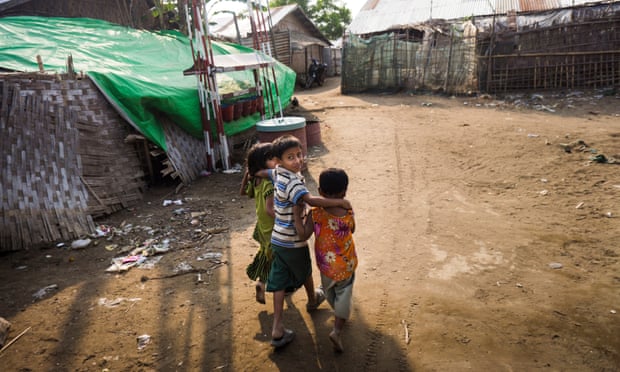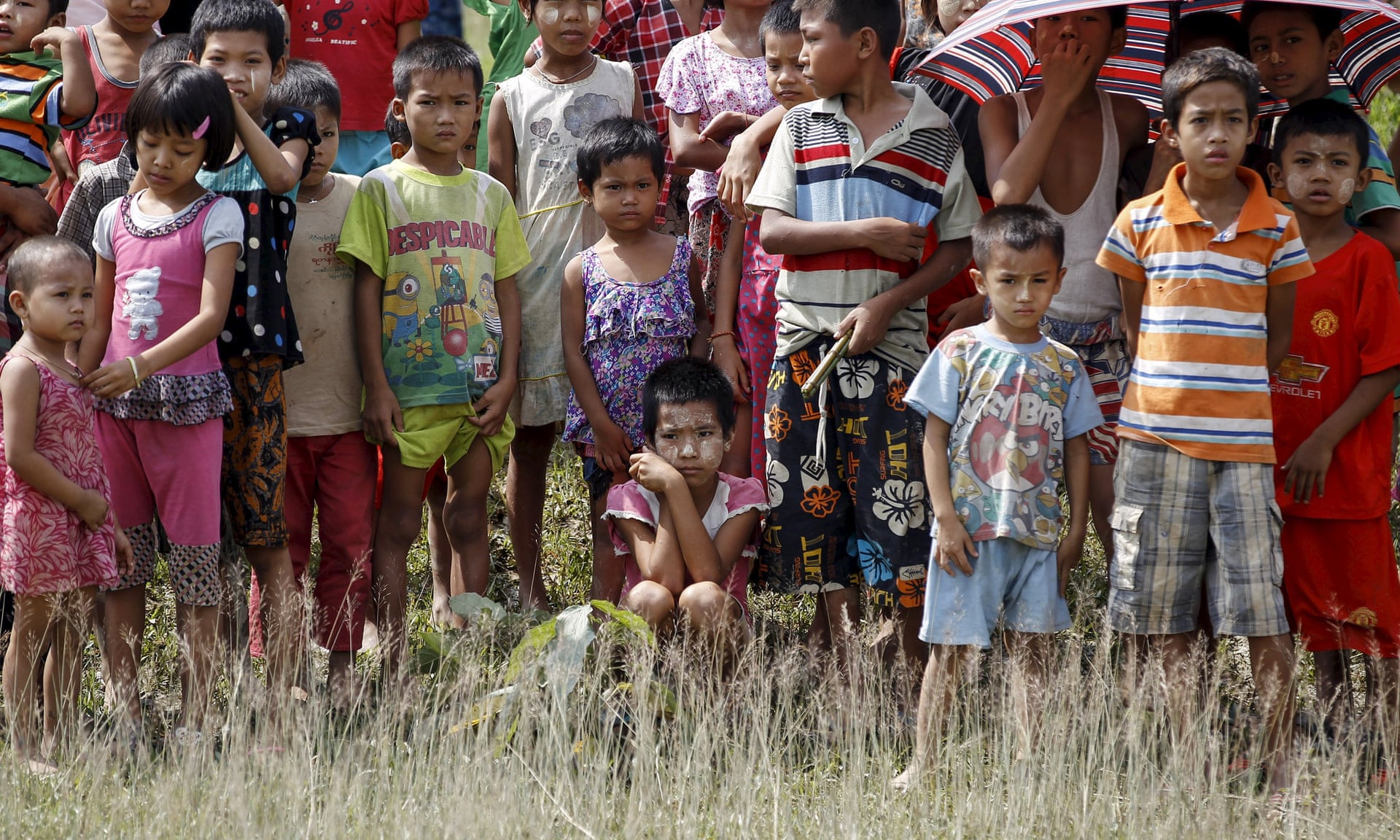Government reforms do not reach children worst affected by conflict and poverty, says Unicef report, calling for an end to blocks on aid deliveries
As many as 150 children die every day in Myanmar before they reach their fifth birthday, the UN children's agency said on Tuesday, in a report calling for the government to end blocks on humanitarian access to conflict areas.
Despite reform and reconciliation efforts undertaken by the one-year-old government headed by Aung San Suu Kyi, children affected by widespread fighting and poverty are not reaping the benefits, Unicef added.
There are disparities across the country, especially for families stuck in war zones and unable to reach health centres, said Bainvel, adding that untreated diseases among newborns, such as pneumonia, are among the big killers.
The child mortality rate is estimated at about 50 per 1,000 live births in Myanmar, Bainvel said. In the UK, the rate is four per 1,000.
The report calls for improved humanitarian access to the estimated 2.2 million children affected by violence, and an end to child rights violations, including the use of children as soldiers.
Myanmar has been lauded worldwide for political reforms spearheaded by a military-aligned government in 2010, which eventually led to the huge election victory of Aung San Suu Kyi in November 2015, ending decades of oppressive army rule.
In spite of this progress, life for many children in Myanmar remains a struggle, Unicef said. Nearly 30% of children under five suffer from moderate or severe malnutrition and more than half of all children live below the poverty line.
The report acknowledged that an "unprecedented period of change and opportunity" was under way in the country. But, it said, "the optimism of 2015 and early 2016 has been tempered by slower than expected progress on economic and policy reforms. Even more worrisome is the escalation of several key conflicts in the country's more remote border areas."
Although barred from the presidency by a military-drafted constitution, Aung San Suu Kyi is the de facto head of state, working as state counsellor and running several ministries.

The former prisoner of conscience promised to first focus on national reconciliation, yet the country – one of south-east Asia's poorest – remains entangled in brutal conflicts along its borders, with the army blocking aid deliveries.
Remote Kachin, Shan and Kayin states continue to experience recurrent clashes between the Myanmar military and ethnic minorities. Civilians find themselves at risk from poverty, statelessness and trafficking, while having only limited access to essential health and education services, Unicef said.
In western Rakhine state, 120,000 internally displaced people live in camps as a result of inter-communal conflict that erupted in 2012. Violence against Rohingya Muslims, for whom the government does not provide full citizenship rights, has surged since October following attacks on border guard posts.
Unicef's representative said aid access to Rakhine had improved slightly but remained very problematic.
"But when it comes to Kachin and northern Shan, access has been denied to us for almost a year, in spite of our requests … it is denied by the government," Bainvel added.
Aung San Suu Kyi, who was awarded the Nobel peace prize in 1991, has been criticised by more than a dozen fellow laureates, who wrote an open letter to the UN security council in December warning of a tragedy "amounting to ethnic cleansing and crimes against humanity" in Rakhine state.
Unicef said the laying of landmines by all parties to the conflicts must end, and mine clearance work should start wherever possible. One out of every three victims of landmines is a child, the report said.


 Unicef urges the Myanmar government to help the country's 2.2 million children affected by violence and conflict. Photograph: Soe Zeya Tun/Reuters
Unicef urges the Myanmar government to help the country's 2.2 million children affected by violence and conflict. Photograph: Soe Zeya Tun/Reuters
No comments:
Post a Comment